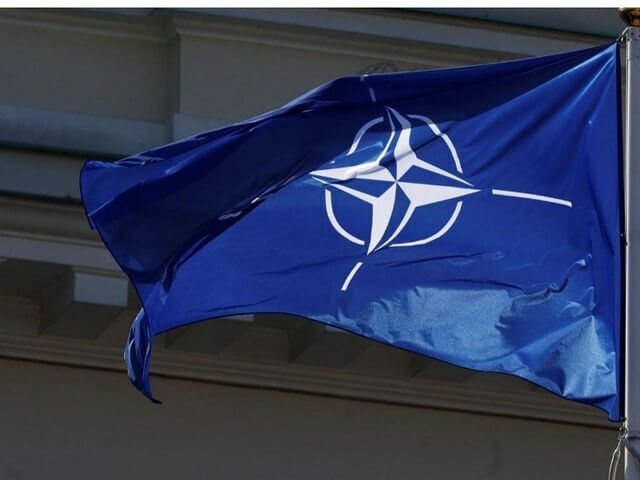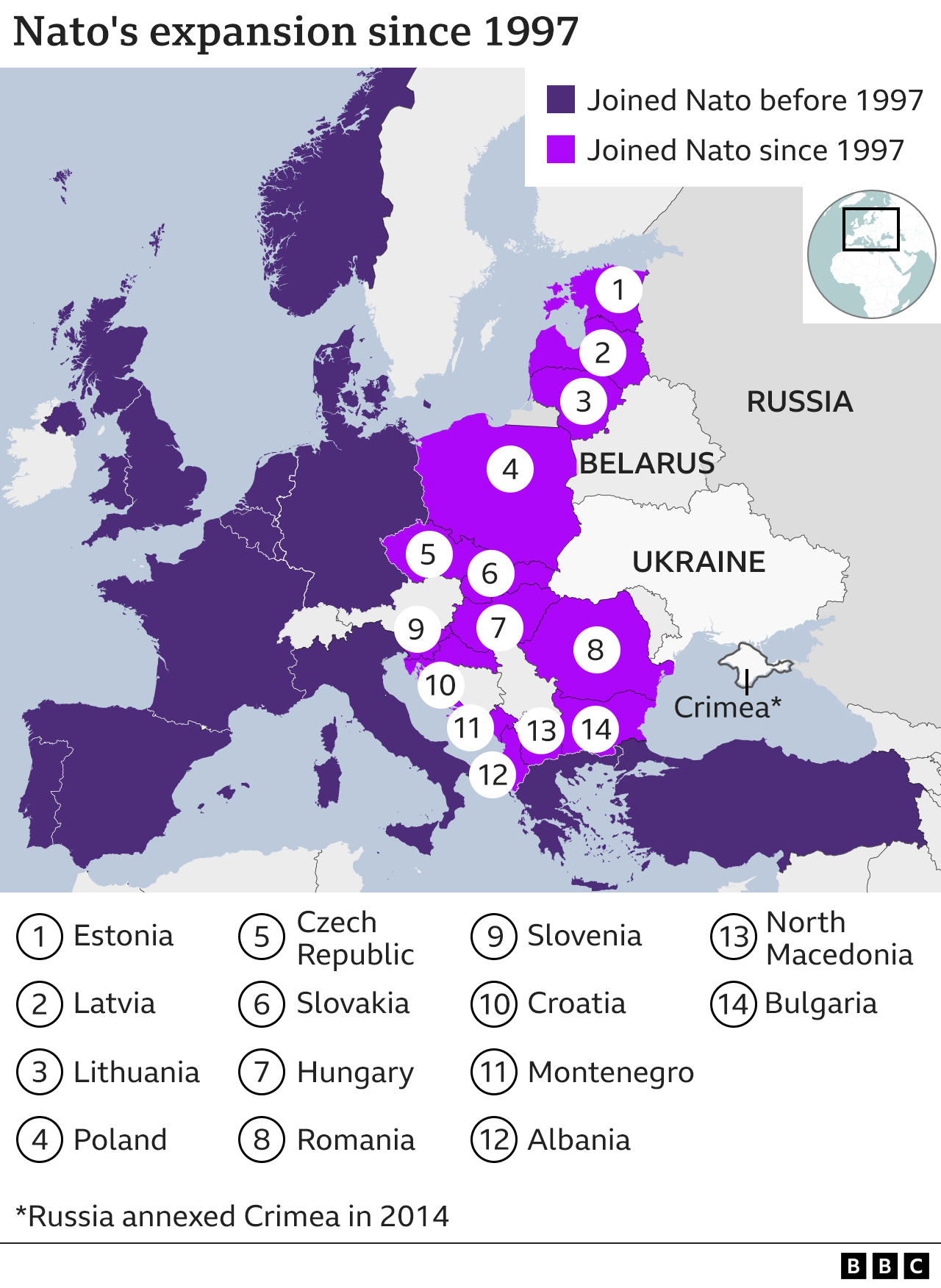From Neutrality to Belligerence
April 24, 2022 | Expert Insights

With Eastern Europe in flames, conventional European security paradigms and dialogues no longer hold good. Finland has had a chequered history with Russia, but has remained non-allied until now, and Sweden, who profited immensely from its years of neutrality, have both now been pushed towards NATO’s arms. Moscow, has ominously threatened to oppose any such move and warned that it would not bring peace or stability to the region.
Background
NATO was founded in 1949 with 12 members, and its goal was to stop the expansion of the Soviet Union. Currently, NATO has 30 members, 12 countries joined the alliance post-1997, and many of them are former members of the Soviet Union.
Sweden and Finland maintained a position of non-alignment for decades. Sweden's neutrality is rooted in its national identity, while Finland's has come from a more pragmatic outlook.
Sweden's foreign policy has kept it neutral for 170 years. As a result, the country has not been involved in any war for over 200 years. Finland, having suffered grievously at the hands of Stalin at the beginning of World War II, has prudently followed a policy of appeasement to keep peace with its giant neighbour to its East. With a common land border of over 1300 km, it signed a Friendship, Cooperation and Mutual Assistance Treaty with the USSR in 1948 and chose neutrality during the cold war.
Analysis
US defence officials have stated that Russia's invasion of Ukraine is a major strategic blow as it will only help NATO expand. The Americans believe that the nordic nations will put a bid to join NATO within the next few months. According to sources within the US state department, the two countries have already been in negotiations with Brussels, and the US supports the move and the expansion of the alliance.
Moscow is not blind to this new dimension of the threat to its security. The official Russian spokesperson enunciated Russian concern when he told the media that "the alliance remains a tool geared towards confrontation". If the expansion goes ahead, as it most likely will, then Russia stands to face the reality of a further eastward expansion of NATO, a contingency it has fought the costly war in Ukraine to prevent. Therefore, the Russian prediction that such a move would only increase instability is not far from the truth. Naturally, Russia will have to take its own measures to balance the situation. Maria Zakharova, Russia's foreign ministry spokesperson, warned of military and political consequences.
An unspoken but widely anticipated counter gambit that Russia could adopt would be to deploy strategic assets in the Baltic region to intensify nuclear pressure on NATO. The war in Ukraine proved the effectiveness of Russian nuclear sabre rattling to keep NATO at bay. Since, as per unconfirmed reports, Russia already stores nuclear assets in Kalinigrad, a Russian territory on the border with Poland and Lithuania, an overt deployment would pose no problem if Moscow decides to up the ante. Whether it rattles the NATO is a matter of conjecture.
The nuclear storage facilities in Kalinigrad have been the centre of much scrutiny. In 2018 the Federation of American Scientists stated that the nuclear bunker in the region was upgraded. The FAS studied satellite images and concluded that a major renovation of active nuclear weapons was done in the region. Pavel Podvig, a military expert, based in Geneva, said, "There is indeed a storage site in Kaliningrad, known as Kolosovka. That is where nuclear weapons for all units located in Kaliningrad would be.”
William Burns, the CIA director, has made it clear that there are legitimate concerns about Russia using nuclear weapons, given the desperation of the nation and its leadership due to the hardships they have been facing in Ukraine. However, the director added that there is still no practical evidence to back these concerns.
Finland's inclusion would double the land borders that NATO shares with Russia, while both Finland and Sweden dominate the Baltic Sea. The Russian Baltic Fleet, based out of Kaliningrad Oblast, is the oldest Russian Naval formation, having been established in 1703. However, after the end of the cold war, it was significantly reduced in combat power, but with a change in the security threats, it may see a revival. This was made clear by former Russian President Medvedev when he said, "Naturally, we will have to reinforce these borders by upscaling land, air and naval defences all through the region". He also said that a nuclear-free Baltic is what Russia wanted, but its hand will be forced depending on the actions taken by NATO, Sweden and Finland.
If Sweden and Finland decide to join NATO, the application process could take up to a year. This means that there will be a time period in which the two nations would be vulnerable to a Russian attack, and NATO will have to decide how they would protect the nations during the interim period. While maintaining their non-allied status, both countries have kept an active military partnership with NATO participating in joint military exercises and even working with NATO planners on strategic and operational planning. Therefore, the assimilation of the two new members into NATO should be smooth and seamless.
In fact, as part of its public debate, the option of joining NATO has always been present in Finland. Sweden is a different matter. Historically, it has viewed the U.S. and NATO with a degree of suspicion. Politically, there has always been disagreement with the Social Democrats opposing any such move. However, it now appears that they, too, are rethinking their stance. The Swedish public opinion is also veering towards NATO membership. No matter how complicated it may be politically for Sweden to join NATO, if Finland does, it would be difficult for the Swedes not to follow suit. The two nations are close defence partners.
Assessment
- Evidently, NATO, led by the U.S., will continue to ignore Russian demand to put its expansion on hold. Washington has made it amply clear that the war in Ukraine has made it even more necessary to expand NATO to prevent Russian hegemony.
- With these steps, tensions in Europe will inexorably rise, thus making an already dangerous security situation into a veritable powder keg waiting to be lit. The repercussions are going to be far and wide, and with the West shifting the focus from Indo Pacific back to continental Europe, the security situation in India's immediate and larger neighbourhood would demand greater care and investments. The dawn of a new cold war appears to be on the horizon.









Comments